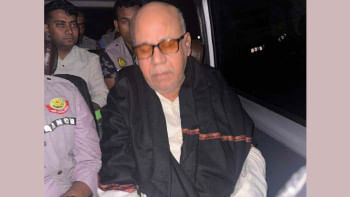Five things to know about changed status

WHAT IS ARTICLE 370?
Article 370 gave Jammu and Kashmir state a special position in India's union. The provision gave Kashmir's assembly the power to vet national laws passed by New Delhi. It also gave the state a separate constitution and a flag. Under the provision, Indians outside the state were blocked from permanently settling, buying land, holding local government jobs and securing education scholarships. Under the changed status, the region will now be governed by the laws applicable to other Indian citizens.
WHY NOW?
Modi's right-wing Bharatiya Janata Party (BJP) can now push through parliament its key policy goals. This includes the BJP's long-held promise to scrap Article 370, which it argues is necessary to integrate Kashmir with the rest of the country. Critics say the BJP's latest move is a part of its agenda to please core supporters and win more votes by stoking Hindu nationalist fervour.

SIGNIFICANCE
The special status, which has been in place since May 14, 1954, has helped Kashmiri Muslims and other communities preserve their strong sense of culture. The ditching of the status has highlighted long-running fears that the local way of life and customs could be lost amid migration from other parts of the country. Analysts say the Indian government wants to change the region's demographics by allowing non-Kashmiris, mostly Hindus, to buy land and settle there permanently.
INT'L RAMIFICATIONS
The decision has a direct impact on relations between nuclear rivals India and Pakistan. Kashmir has been divided between the neighbouring countries since 1947 and they have fought two out of three wars over the region. In February the countries were on the brink of war after India launched air raids on Pakistan over a deadly bombing in Kashmir that killed 40 paramilitary troops. Pakistan launched counter air strikes with the retaliations on both sides sending tensions to yet another high amid threats of a nuclear war. India is meanwhile engaged in a protracted dialogue with China over the territory, which Beijing controls a part of. The move could also affect the United States' move to exit Afghanistan after an 18-year war, launched following the 2001 terror attacks.
WHAT'S NEXT?
Up next is a bill proposing splitting the state of Jammu and Kashmir into two union territories -- Jammu and Kashmir division, and Ladakh. This means the entire region would lose its autonomous status and come under the direct rule of New Delhi. The Jammu and Kashmir division will have its own assembly and elections but the national government will have control of local laws, including the maintenance of public order. The tinderbox region was placed under a massive security lockdown and communications were cut ahead of yesterday's announcement, on fears it would trigger fresh unrest.


 For all latest news, follow The Daily Star's Google News channel.
For all latest news, follow The Daily Star's Google News channel. 



Comments